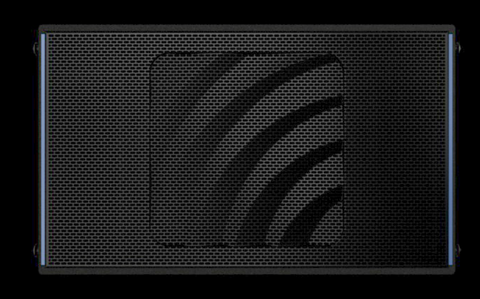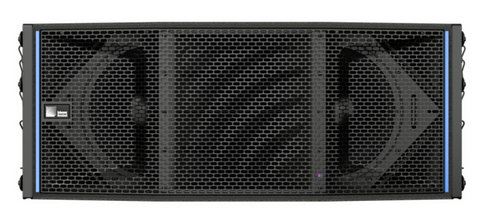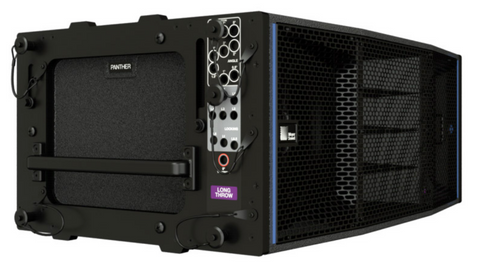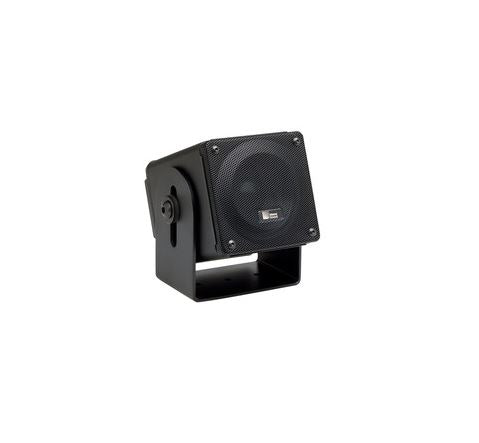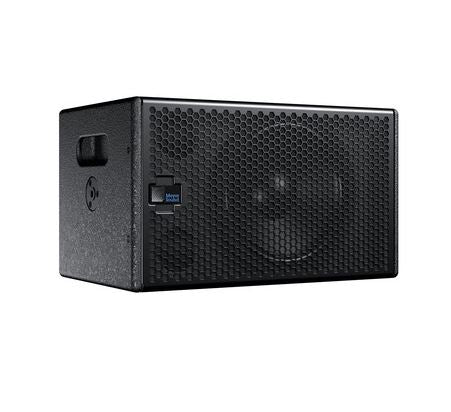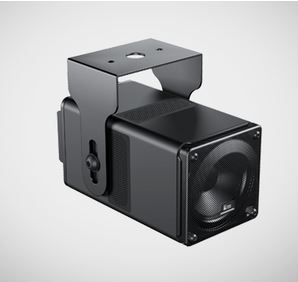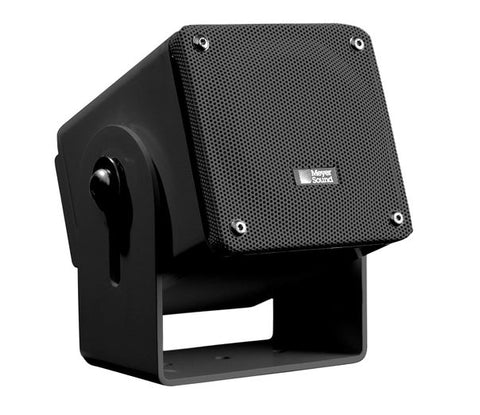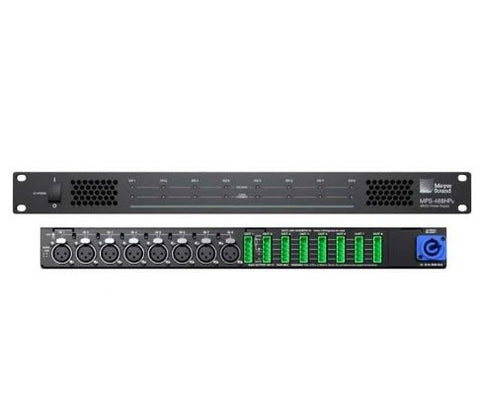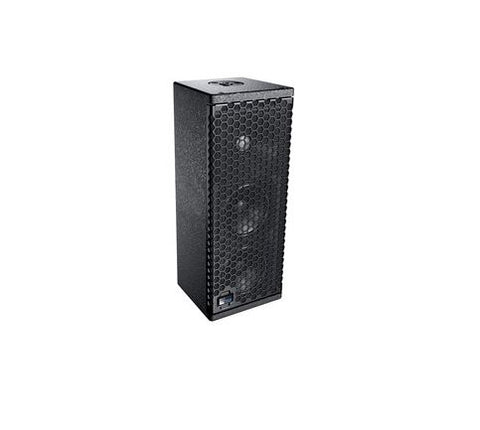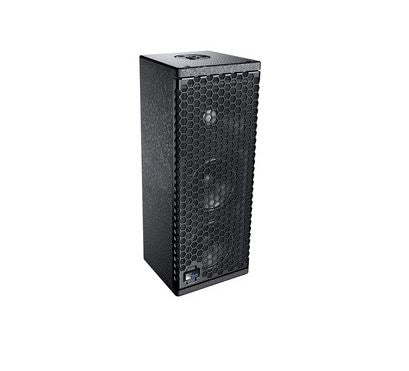Meyer Sound MJF-210-RMS-5 Active Stage Monitor
Vendor: Meyer Sound
Available

Meyer Sound MJF-210-RMS-5 Active Stage Monitor
The MJF series is boasting about flat amplitude and phase responses, full-range bandwidth, and exceptional impulse response, that comes along with Meyer Sound’s own Intelligent AC system intended for automatic voltage selection, EMI filtering, soft current turn-on, and surge suppression.
A perfect balance of potent power, remarkable fidelity, small footprint, and minimal weight that is giving the life to a high-performance monitor that is meeting the most rigorous demands of live production.
Ultra-low distortion is giving the vocals and instruments stunning accuracy, that comes along with low distortion and no signal coloration at high output levels and at low frequencies. Even vertical and horizontal coverage is allowing the performer form moving freely and remaining in the sweet spot at the same time.
All components are being optimized for working seamlessly in a robust, reliable system that withstands the rigors of touring. Units is made with a durable finish, a protective metal grille, and protective bottom rubber strips.
The MJF-210 low-profile high-power stage monitor is professionally designed capable of reproducing the audio faithfully along with high intelligibility at high output levels that comes with ample low-frequency headroom. The self-powered MJF-210 is exceeding the stringent requirements of today’s touring applications, withstanding the rigors of road and stage and occupying a small, lightweight footprint and a fraction of the truck space of similar monitors at the same time which are requiring external amplification. The MJF-210’s phase-corrected 55Hz to 18 Hz frequency range is ensuring that vocals and instruments are reproduced accurately along with low distortion and no signal coloration. Exhibiting flat phase and frequency responses, as well as exceptional impulse response, the MJF-210 surpasses the sonic capabilities of conventional stage monitors and capable of offering the simplicity of self-powered setup and operation at the same time. The MJF-210’s durable, vented enclosure is housing two high-power, long-excursion, 10- inch low-frequency drivers, as well as a 4-inch diaphragm compression driver partnered to a 50-degree horizontal by 70-degree vertical constant directivity horn. The face of the low-profile cabinet slopes 35 degrees from the stage, which ensures optimal monitoring for the performer, permitting freedom for moving upstage and downstage and remaining within the horn’s consistent, wide vertical coverage at the same time. Drivers are made being powered by a 3-channel, class D amplifier. The Intelligent AC™ power supply is providing an automatic voltage selection, EMI filtering, soft current turn-on, and surge suppression.
MJF loudspeakers are working along with Meyer Sound’s RMS™ remote monitoring system, which is capable of providing an comprehensive monitoring of system parameters from a Mac® or Windows®-based computer.
Applications
- Main vocal monitor
- High output instrument monitor
Features
- Self-powered system guarantees simplified setup and operation
- Small lightweight footprint with no external amplification occupies less truck space
- Low profile cabinet preserves onstage sight lines
- Wide vertical coverage permits the freedom to move upstage and downstage
- High peak power ensures excellent transient response
- Flat frequency and phase responses yield high gain before feedback
- Acoustical
- Operating Frequency Range: 55Hz – 18kHz
- Frequency Response: 60Hz – 16kHz ±4dB
- Phase Response: 200Hz – 16kHz ±45°
- Coverage
- Horizontal: 50°
- Vertical: 70°
- Crossover: 830Hz
- Transducers
- Low Frequency: Two high-power 10-inch cone drivers
- High Frequency: One 4-inch diaphragm compression driver
- Audio Input
- Type: Differential, electronically balanced
- Maximum Common Mode Range: ±5VDC
- Connectors: XLR female input with XLR male loop output
- Input Impedance: 10kΩ differential between pins 2 and 3
- Wiring:
- Pin 1: Chassis/earth through 1kΩ, 1000pF, 15V clamped network to provide virtual ground lift at audio frequencies
- Pin 2: Signal (+)
- Pin 3: Signal (–)
- Pin 4: RMS (polarity insensitive)
- Pin 5: RMS (polarity insensitive)
- Case: Earth ground and chassis
- DC Blocking Differential DC blocking up to the maximum common mode voltage: CMRR >50dB, typically 80dB (50Hz – 500Hz)
- RF Filter Common mode: 425kHz; Differential mode: 142kHz
- TIM Filter Integral to signal processing: (
- Nominal Input Sensitivity: 0.0dBV (1.0V rms) continuous is typically the onset of limiting for noise and music
- Input Level Audio: source must be capable of producing +20dBV (10V rms, 14V peak) into 600Ω to produce the maximum peak SPL over the operating bandwidth of the loudspeaker
- Amplifier
- Type: 3-channel, class D
- THD, IM, TIM: less than 0.02%
- Cooling: Convection
- AC Power
- Connectors: powerCON 20 with loop output
- Safety Rated Voltage Range: 100–240VAC, 50–60Hz
- Turn-on/off Points: 90VAC turn-on, no turn-off; internal fuse-protection above 265VAC
- Safety Rated Voltage Range 100–240VAC, 50–60Hz
- Turn-on/off Points 90VAC turn-on, no turn-off; internal fuse-protection above 265VAC
- (@115VAC) (@230VAC) (@100VAC)
- Current Draw:
- (Idle) 0.26A rms (@115VAC)
- 0.25A rms (@230VAC)
- 0.28A rms (@100VAC)
- Maximum Long-Term Continuous (>10 sec):
- 1.8A rms (@115VAC)
- 1.1A rms (@230VAC)
- 2.6A rms (@100VAC)
- Burst (
- 3.5A rms (@115VAC)
- 1.8A rms (@230VAC)
- 4.2A rms (@100VAC)
- Maximum Instantaneous Peak:
- 16A peak (@115VAC)
- 8A peak (@230VAC)
- 18A peak (@100VAC)
- Inrush:
- 17A peak (@115VAC)
- 20A peak (@230VAC)
- 15A peak (@100VAC)
- RMS Network Equipped with 2-conductor, twisted-pair network, reporting all amplifier operating parameters to host computer
 USD
USD EUR
EUR
 AUD
AUD
 GBP
GBP
 JPY
JPY



